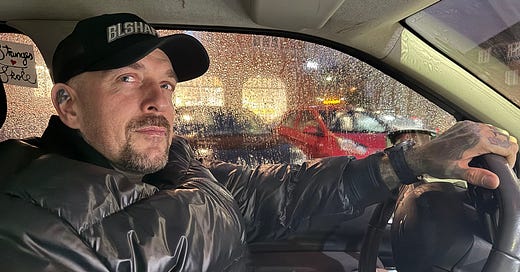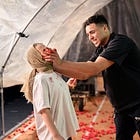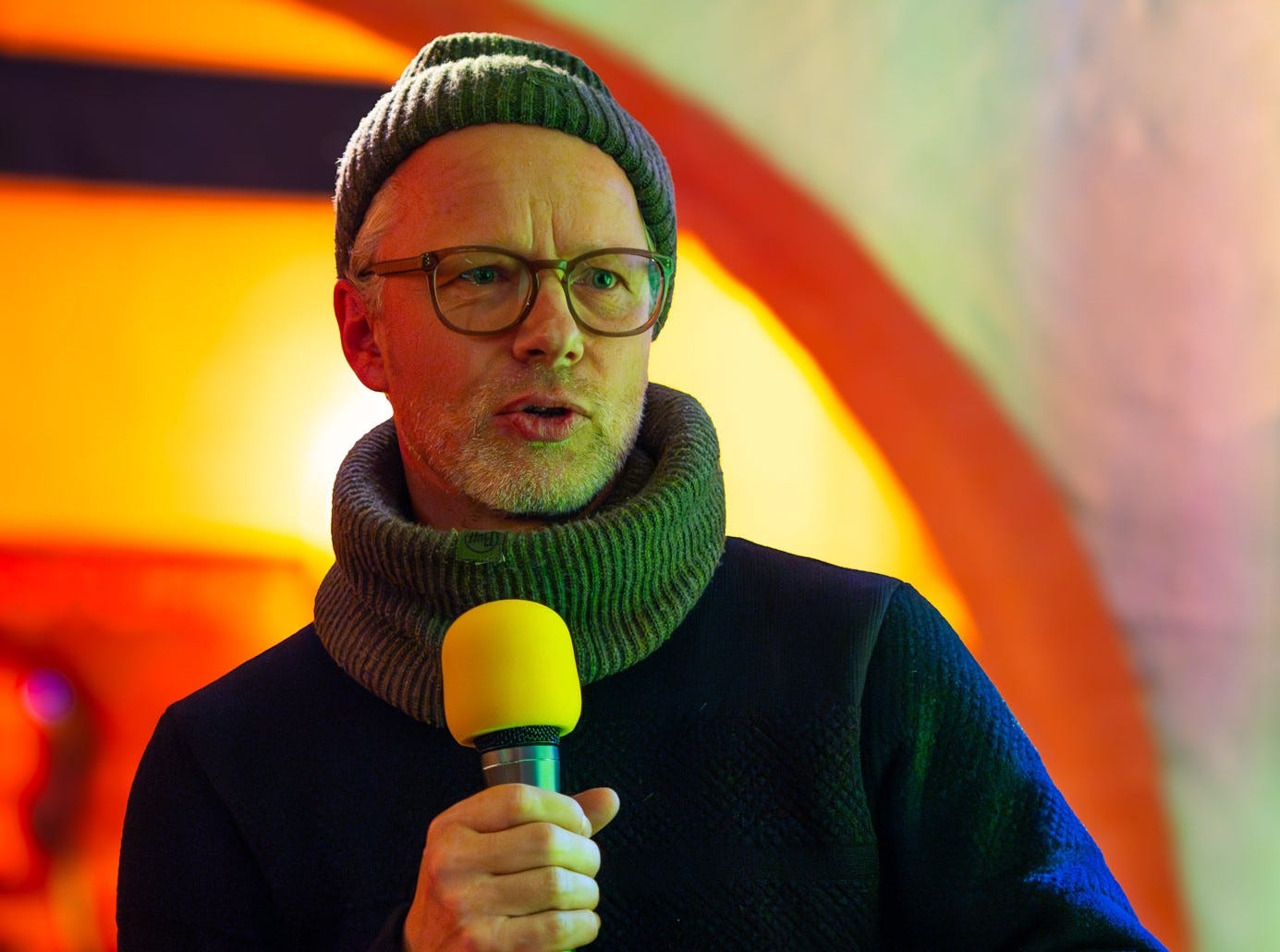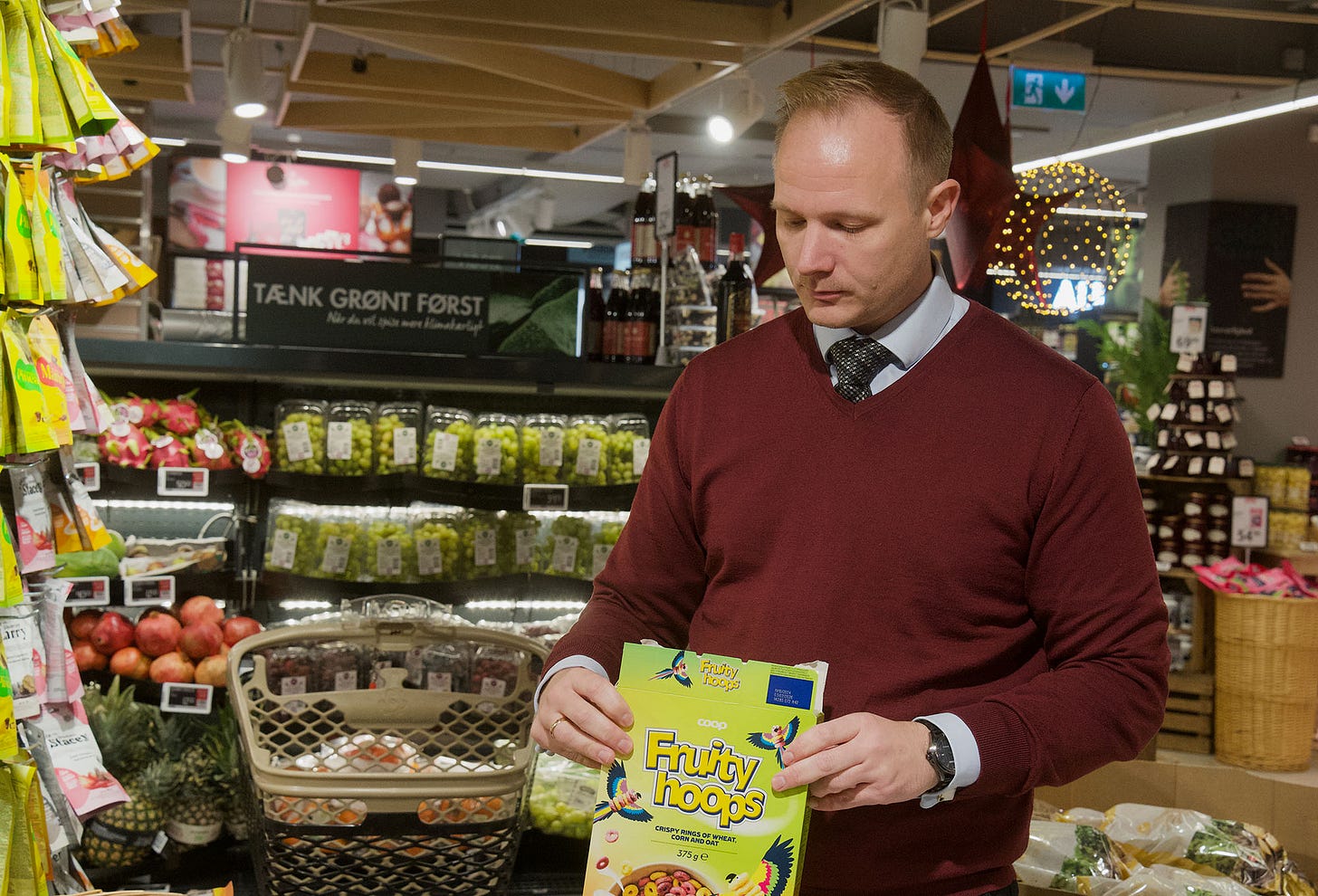We, the people: Fix+Foxy's The State
On the Danish theatre company's ambitious new project exploring the relationship between citizens and the state.
I’m back in Belgrade this week, where the student protests that have swept Serbia are still very much underway. While I was in Berlin I wrote a piece about the protests and what sparked them for Nachtkritik, but given the fast-moving nature of what’s going on here, a lot as happened since that piece was published. The students have now set their sights on the main state broadcaster RTS and have another major protest planned for this weekend.
This week’s newsletter is about Fix+Foxy, a company with whom I’ve long been fascinated and whose work I’ve written before, and who are currently mounting their biggest project to date in venues around Copenhagen.
If you want to support my writing while keeping this site largely paywall-free (though there will be occasional paid subscriber bonus posts, like this one on Robert Lepage’s Faith, Money, War and Love), you can do so for just £5 a month or £50 a year. Or just share this newsletter with someone you think might find it interesting. That helps too.
One could never accuse Denmark’s Fix+Foxy of being short on ambition. Their 2019 show Dark Noon, performed by a company of South African actors, attempted to condense the story of the American west into 100 minutes. It was one of the most theatrically thrilling things I saw at the 2023 Edinburgh Fringe. (Here’s an enthusiastic review in the Guardian and an article about the show’s reception in the US). Their production of A Doll’s House, which returns this year, was created to be staged inside people’s homes, while Welcome to Twin Peaks used David Lynch’s seminal film as the inspiration for a portrait of a small rural community in which audience members were driven around Odsherred in north west Denmark, meeting with locals along the way. Their most recent show The Berries of Wrath gave voice to the migrant workers who pick the strawberries that fill Danish supermarket shelves. The State is, however, the company’s biggest project to date.
Spanning half a year from January to June and taking place in venues across Copenhagen, it’s an attempt to explore the relationship between citizens and the state via a series of encounters with real people including a former civil servant, an economic analyst, a senior police officer, a graffiti artist, a taxi driver, a kindergarten worker, a blind woman who spent her childhood in a state institution, an ex-career criminal, and a woman who has spent years negotiating the job centre system.
Together the pieces form a tapestry of different arms of the state and how they operate - agriculture, health and social care, politics and the media - and the ways in which different people interact with the state throughout their lives. Each encounter – or episode – takes place in a different location across the city and has a different format. The episode with the graffiti artist, for example, takes the form of a walking tour of Copenhagen’s street-art, while the episode with the taxi driver takes its audience on a drive around the city. The episode called Walking Dead takes the form of a clandestine basement meeting in which the speakers argue that all tax should be abolished. (This review describes the experience of this episode as well as offering some thoughts on the wider project).
Fix+Foxy’s artistic director Tue Biering wanted to explore “the negotiation that is always going on between citizens and the state.” At the same time, he was also deeply aware of the fact that his ideas about the state and its role in our lives differed, sometimes considerably, from other people’s. “I found it really interesting to meet all these people with very different viewpoints of the state, and also very different experiences of the state,” he says.
The show has very consciously tried to include people with a range of political views, backgrounds and life experiences. “I've always been fascinated about living in a society where I have to accept that there are many very different people from me,” says Biering. To live in a society is to encounter people with widely differing viewpoints and to find ways of coexisting. “That’s the curse of democracy,” he jokes. As much as you might want to “live in my own dictatorship,” as Biering puts it, that's not how things work.
Similarly, the locations were chosen with the intention of taking people into places they might not otherwise go. In the episode entitled Heat, for example, the audience is asked to turn up at a gas station, where they meet Kevin, a former bank robber who has been engaged in criminal activity since he was a teenager. They then get in a car with him and drive around the neighbourhood.
Kevin’s story is, in part, about how much money the state spends on citizens like Kevin, says Biering, including on the years he spent in prison and on trying to catch him. This episode is experienced by four people at a time, sharing the car with Kevin (someone who “used to drive very fast away from the police”). Kevin’s favourite film Is Heat and he explains how his crew used to watch the heist scene from the movie every time they robbed a bank.
In the episode entitled Territory, which takes place at the Hirschsprung Collection, an art gallery in Copenhagen, the audience is presented with a very different perspective on the state. Ole describes the impact of various regulations on his life as a farmer, and the control he feels that the state exerts on every aspect of his work. Ivan the taxi driver, meanwhile, is into statistics, says Biering. “He’s a big nerd” in this respect. He knows the costs of everything, and he’s spent his career “driving around with customers from all layers of society.”
The show’s website – StateofDenmark.dk – invites audience members to create a profile, asking them questions about their income, political leanings and dietary preferences. It is, however, designed to be anti-algorithm. “I’m concerned about how algorithms only serve me stuff I’m already getting,” says Biering. This show attempts to do the opposite. “If you are left wing then you will get someone right wing. If you are very wealthy, then you will speak to someone who is homeless and so on.”
Produced in collaboration with Toaster, The State is a logistically complex undertaking. In addition to Biering, there are three co-directors and a dramaturg, Miriam Frandsen. There are currently 19 episodes listed, but more are being created – after our interview Biering was going to speak to a renowned Danish lawyer who’s made a career of mounting big cases against the state, with a view to including him.
While the episodes are independent of each other and can be viewed in any order, one of the fundamental points of The State is that all of these things, all these people’s experiences, are interconnected. Education, economy, crime, care - they’re all interlinked. In order to facilitate the watching of multiple episodes, the show operates on a subscription model, much like that of a streaming service. A monthly ticket costs 129 DKK (around € 17) and audience members can book as many of the experiences they want provided there is space – audience capacity varies hugely from episode to episode.
“We couldn't find a ticketing system in Denmark that could meet our needs,” says Biering. They needed a system that would make it possible to undo your reservation if you couldn’t make it, in order to free up the space for someone else. There are waiting lists and people get a text message when a space becomes free. In the end they used the same programme as a website for booking yoga classes, Biering explains.
Making the show has raised a lot of questions – how do you cast it? Who exactly do you include? Which viewpoints? While creating the show the makers came to realise that it wasn’t just about them casting people to participate in the project, but “also about people casting us.” People came to The State with different agendas, different things they wanted to express and different ways in which they wanted to engage. For some people, their experience of the state has been very negative, and that’s what they want to communicate. For others, it’s a wish to challenge or contradict the narrative of Denmark as being an open and transparent society. For some, like Kevin, who has spent much of his life surrounded by other criminals, his participation is motivated by a wish to meet people from a world other than his own.
Then you have people like the tax abolitionists in Walking Dead, who Biering describes as “liberal anarchists” and who force the audience to think about the societal pact that is paying tax, to really interrogate their thoughts on the matter from an angle they may not have considered before.
The piece has also made Biering think about his own position as an artist and whether it is possible to remain neutral, especially if some of the views expressed diverge considerably from his own. It sometimes forced him to ask himself: “Where is my limit?” What happens if someone involved expresses views that are homophobic or racist? Does that make their views on the state any less valid?
Biering has on occasion found some of the things people have said disturbing and yet, he says, “I'm still creating the best possible frame for everyone.” This has proved really challenging at times, but the nature of the piece means that “it gives a voice to everybody, even though I am really provoked by some things people say.”
One episode features a man called Jesper who holds extreme far right views. Audience members are told at the start that this is not a dialogue, that the audience is there to listen, though there will be a chance to talk with him afterwards for those who want it. Many people take him up on this offer. “From what I have heard to now, it actually becomes a really interesting conversation,” says Biering. The State is a show that invites its audience to confront views they might not agree with or find palatable, that they might even find repellent.
The location also plays a role in how people engage with each episode. Some take place in super-intimate surroundings, like the back seat of a car, where the audience are eye-to-eye with the performer and elbow-to-elbow with each other. This creates a sense of community in the audience. It is, in many ways, the opposite of the conventional theatre experience, where “everyone is just looking in the same direction and you can't remember who was sitting next to you.”
At the same time, says Biering, it’s really easy to create the sense of connection and intimacy in a car. It doesn’t take much to do that. “To create that same sense of intimacy in a conventional theatre space, in the kind of room that people have been sitting in for hundreds of years, that’s far more difficult,” says Biering, “that’s the real challenge.”
This week in European theatre
A round-up of festivals, premieres and other upcoming events over the next seven days.
Oslo Internasjonale Teaterfestival - Hosted by Oslo’s Black Box Theater, this year’s edition of the Oslo international festival has the title: “Roots and Reclamations: Theater at the Crossroads of Empire and Identity” and features work by Kosovo’s Jeton Neziraj, including a new collaboration with the Norwegian Theatre Academy, and work from Kyrgyzstan and Ukraine. The festival runs from 13th- 29th March.
We are the Lucky Ones – This new collaboration between Philip Venables and Ted Huffman – creators of The Faggots and their Friends between Revolutions - and the playwright Nina Segal,is based on interviews with more than seventy people in Western Europe who were born between 1940 and 1949. It opens at the Dutch National Opera on 14th March as part of their Opera Forward Festival.
The Birds - Director Lilja Rupprecht knits together Aristophanes’ play with Hitchcock’s 1960s classic, based on the story by Daphne Du Maurier, in a production which features performers from Switzerland’s Theater HORA and Zurich’s Schauspielhaus. It opens in Zurich on 14th March.
Thanks for reading! If you have any feedback, tips, thoughts or other comments you can reach me on natasha.tripney@gmail.com








